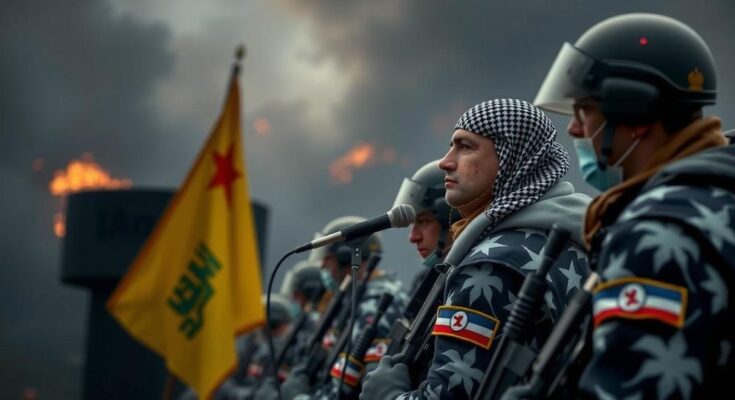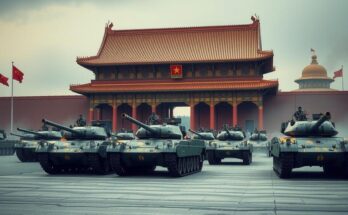Hezbollah’s acceptance of a cease-fire after a 13-month conflict with Israel indicates its weakened state. The group has suffered significant losses, including leadership decimation and extensive damage to its support base. As Hezbollah faces isolation domestically and regionally, its capacity to maintain political influence in Lebanon remains in question.
A prolonged conflict lasting thirteen months has gravely compromised Hezbollah’s strength and credibility. Once positioning itself as the primary defender of Lebanon against Israeli aggression, the group now grapples with a fragile cease-fire established on Wednesday following intensifying Israeli military operations. The agreed-upon truce is set for 60 days and aims to pave the way for a more enduring peace agreement. However, in light of recent setbacks, Hezbollah’s narrative of invincibility appears fundamentally undermined.
The Israeli offensive marked by extensive airstrikes and tactical intelligence operations resulted in the targeting of senior Hezbollah leaders, including the assassination of its long-standing secretary general, Hassan Nasrallah. The attacks devastated Hezbollah’s base of support in Lebanon, displacing hundreds of thousands of individuals and destroying key infrastructure, complicating efforts for post-war recovery.
Hezbollah’s unilateral initiation of hostilities against Israel has invited widespread criticism and has left the organization politically isolated within Lebanon and across the broader region. Many observers speculate that the repercussions of this conflict may diminish Hezbollah’s ability to exert influence within Lebanon’s political landscape. Yet, the capacity of rival factions to counter Hezbollah remains uncertain, creating apprehension regarding the future governance of the country and its stability.
Hezbollah’s emergence as a formidable military and political force in Lebanon has been intricately linked to its claims of resistance against Israeli incursions. Historically, the organization has relied on its purported military prowess and alliances, particularly those cultivated through Iranian support, to portray itself as Lebanon’s bulwark against Israeli attacks. However, the recent war has raised important questions about Hezbollah’s operational capabilities and its political standing in both Lebanese society and the region.
The recent cease-fire accepted by Hezbollah marks a significant turning point for the organization, reflecting both military setbacks and shifts in public sentiment. As this conflict concludes, various factions within Lebanon will reassess their political strategies in light of Hezbollah’s diminished power, while the duration and terms of the cease-fire will be crucial in shaping the region’s future stability and governance.
Original Source: www.nytimes.com




